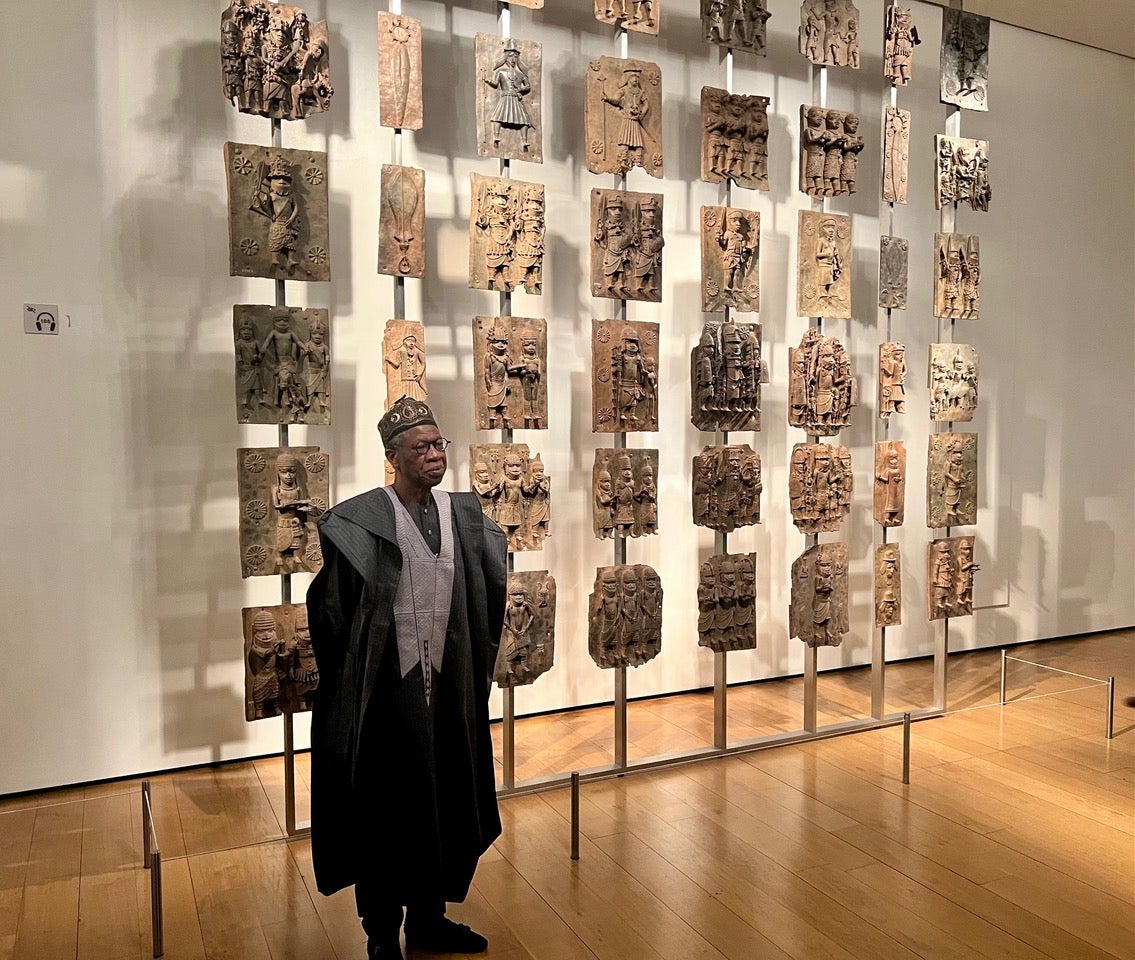The Independent's journalism is supported by our readers. When you purchase through links on our site, we may earn commission.
African countries want our history back – Britain should return the Benin Bronzes
The British Museum alone holds 69,000 African artefacts from across the continent, our heritage cannot be held hostage by Europeans


Your support helps us to tell the story
From reproductive rights to climate change to Big Tech, The Independent is on the ground when the story is developing. Whether it's investigating the financials of Elon Musk's pro-Trump PAC or producing our latest documentary, 'The A Word', which shines a light on the American women fighting for reproductive rights, we know how important it is to parse out the facts from the messaging.
At such a critical moment in US history, we need reporters on the ground. Your donation allows us to keep sending journalists to speak to both sides of the story.
The Independent is trusted by Americans across the entire political spectrum. And unlike many other quality news outlets, we choose not to lock Americans out of our reporting and analysis with paywalls. We believe quality journalism should be available to everyone, paid for by those who can afford it.
Your support makes all the difference.Last month, I visited Germany to sign an agreement for the return of 1,130 Benin Bronzes – the hand-cast sculptures that once lined the historic palaces of Benin kingdom in my country, Nigeria. Looted during a punitive colonial expedition in 1897, this act of repatriation returns our bronzes to their rightful home.
However, Germany was not the former colonial power in Nigeria. Nor did they steal the intricate narrative plaques that once decorated the pillars of palaces, the commemorative brass-cast heads of rulers that stood on altars, or other religious and cultural ceremonial objects.
It was the British that sold our treasures to them, in part to pay for the destruction of the kingdom of Benin. Yet despite legitimately acquiring them, Germany knew returning the bronzes was the right thing to do.
Perhaps it is thanks to Germany that some British institutions are now following suit. This week, leadership councils of both Oxford and Cambridge Universities agreed to return a combined 213 Benin Bronzes held by Oxford’s Pitt Rivers and Ashmolean museums, and Cambridge’s Museum of Archaeology and Anthropology. The decision must be signed off by the Charity Commission, but if sanctioned, would constitute the largest ever repatriation of its kind from Britain.
However, despite the commendable actions of these smaller, non-national institutions, the British establishment at large refuses to get with the times. The British Museum, holding the largest single collection of bronzes, refuses to return the objects that connect our country to a time before colonial rule. At best, they have offered to loan our own cultural heritage back to us. I had to remind them, when visiting the museum this month, we are still awaiting a response to a letter from October 2021 demanding the repatriation of antiquities.
The British Museum alone holds 69,000 African artefacts from across the continent. How can we be equal partners when it denies so many of their heritage?
The theft is not denied. Curators explained that the circumstances of acquisition – the destruction and looting of one of west Africa’s great powers – are now displayed more transparently alongside the objects. This is welcome but also leaves an unpleasant taste in the mouth. Why display the illegal means through which these precious artefacts were obtained if there is no intention of returning them? Admittance alone does not bring absolution.
One answer is that they are of global cultural significance and must be preserved for posterity. The subtext is that Africans cannot be trusted as custodians of our cultural heritage. Yet this omits that the bronzes survived for hundreds of years before they were stolen; and that no harm has come to those that have been returned – either through others doing the right thing, or, perversely, buying back what is ours.
Another states that encyclopaedic museums, “serve not just the citizens of one nation, but the people of every nation” – promoting cross-cultural learning and placing them within a global context. Once legitimate ownership has been restored, however, there is no reason parts of the collection cannot be loaned back to the British Museum. Even if that were not the case, universal culture should not be enriched by erasing specific cultures. African heritage can no longer remain hostage in European museums to preserve such ideas.
For Nigerians, these are not only beautiful artefacts to be seen in foreign museums, but a connection to our ancestors. Through them, we trace our history, with many recording events, whilst others served spiritual or cultural functions. And it is in knowing our past, anchored in the rich heritage, that new futures might unfold. Refusal to return our historical artefacts deprives us of both.
That is why governments and museums around the world are moving toward restitution. In addition to Germany, the Smithsonian and the Metropolitan Museum of Art in the US, and Jesus College Cambridge and the University of Aberdeen in the UK, have either returned or made agreements to return the Benin Bronzes they hold.
Amongst wider currents of repatriation of African artefacts – 90 per cent of which reside in Europe rather than Africa – Belgium, France, the Netherlands have made various commitments. For Nigerians, and many others around the world, the debate is settled, the moral calculus cast. It is a matter of when.
Britain and its museums risk being left behind. The citizens of Nigeria and other African countries want their history back. Furthermore, it threatens to blemish our wider relationship with the UK. Cultural issues are of growing importance in diplomacy. Through this simple act of return, the friendship between the UK and Nigeria – Africa’s largest population and economy – would be buttressed.
If the British government is serious about fortifying Commonwealth bonds now it is out of the EU – as it stated recently in Rwanda – it is a simple way to embed trust. Germany has now set an example the world must follow. A new museum is currently being constructed in Benin city. It would be an indictment on the UK if it opens empty, only so British institutions avoid gaps in their own collections.
Lai Mohammed is the minister of information and culture for the federal government of Nigeria
Join our commenting forum
Join thought-provoking conversations, follow other Independent readers and see their replies
Comments